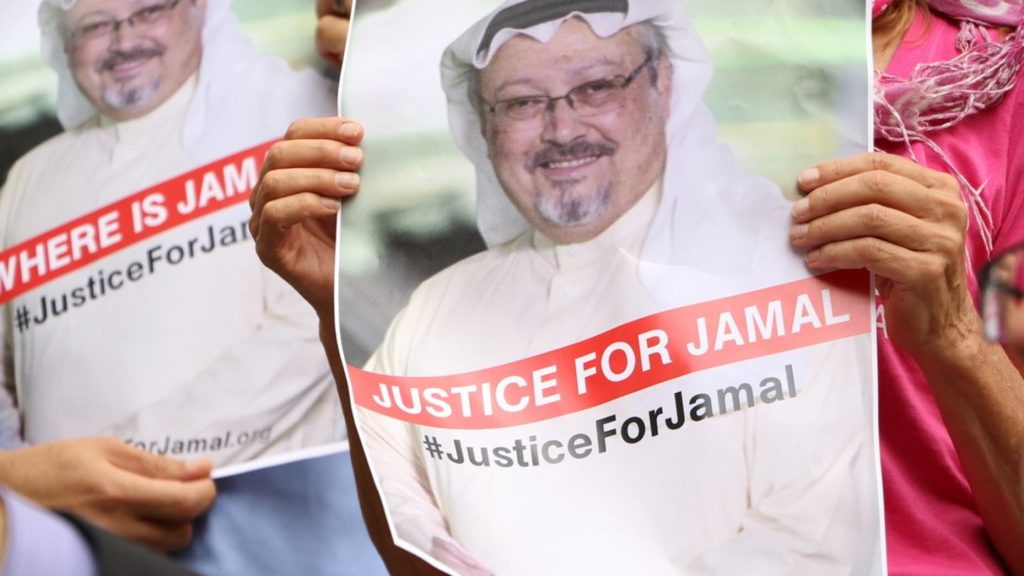
The Assassination of Jamal Khashoggi: A Deep Dive into the Tragic Event
On October 2, 2018, Jamal Khashoggi, a prominent Saudi journalist, was brutally murdered inside the Saudi consulate in Istanbul. The Jamal Khashoggi assassination quickly became a worldwide sensation, sparking outrage and drawing global attention to human rights issues, press freedom, and the role of international politics in shielding perpetrators from justice. This tragic event has remained a pivotal moment in the recent history of journalism, diplomacy, and geopolitical tensions.
Khashoggi, a former ally of the Saudi royal family, had become a vocal critic of the regime. In his writings, particularly for The Washington Post, he often condemned the policies of Crown Prince Mohammed bin Salman, especially his crackdown on dissent and his involvement in the war in Yemen. His vocal criticisms made him a target of the Saudi government, and his gruesome death served as a stark reminder of the risks faced by journalists who dare to speak out against powerful regimes.
The Events Leading to the Killing
Jamal Khashoggi’s assassination unfolded inside the walls of the Saudi consulate in Istanbul, where he had gone to obtain documents related to his upcoming marriage. What was supposed to be a routine visit turned into an international crisis. Security camera footage and testimonies from witnesses revealed that Khashoggi was lured into the consulate by a Saudi intelligence team, which had been sent from Riyadh. His body was dismembered and allegedly disposed of, making it almost impossible to locate the remains.
The Saudi government initially denied any involvement in Khashoggi’s disappearance, claiming he had left the consulate unharmed. However, as evidence mounted, including leaked intelligence reports and the involvement of Saudi officials, the true extent of the cover-up began to emerge. Investigations indicated that Khashoggi’s death was part of a larger plot orchestrated by high-ranking members of the Saudi government, though Crown Prince Mohammed bin Salman himself was never directly implicated by official Saudi sources.
International Reactions and Diplomatic Consequences
The Jamal Khashoggi assassination sent shockwaves across the globe. Governments, international organizations, and human rights groups condemned the killing, demanding accountability and transparency from the Saudi regime. While Western leaders expressed outrage, the reactions from some world powers remained cautious, with economic and strategic interests often taking precedence over human rights concerns. The United States, for example, under the Trump administration, stopped short of taking decisive action against Saudi Arabia, despite CIA reports linking the Crown Prince to the assassination.
However, the killing did ignite broader debates about the role of authoritarian regimes in suppressing dissent and stifling free speech. The Jamal Khashoggi assassination also reignited discussions on the power and influence of the Saudi monarchy and its ability to manipulate international diplomatic relations.
The Impact on Press Freedom
The tragic death of Jamal Khashoggi highlighted the growing risks faced by journalists working in repressive environments. Khashoggi was not only an outspoken critic of the Saudi government, but he also became an emblem of the dangers that journalists face when speaking truth to power. His killing serves as a stark reminder of the risks associated with investigative journalism, especially in countries where freedom of the press is severely limited.
The Jamal Khashoggi assassination prompted increased calls for stronger protections for journalists worldwide, emphasizing the importance of safeguarding press freedom, ensuring accountability for those responsible for targeting the press, and addressing the broader issue of global impunity. In the wake of his death, several organizations and activists have called for justice and greater international efforts to prevent similar atrocities from happening in the future.
Ongoing Legal and Political Fallout
The aftermath of Khashoggi’s killing continues to reverberate in both legal and political spheres. While several individuals believed to be involved in his murder have been arrested and tried in Saudi Arabia, the larger network of responsibility, including the involvement of senior officials, remains a matter of international debate.
In the United States, investigations continued under the Biden administration, which took a more critical stance against Saudi Arabia compared to its predecessor. The U.S. government declassified a report from the CIA that concluded Crown Prince Mohammed bin Salman likely approved the assassination. However, despite these findings, diplomatic ties between the U.S. and Saudi Arabia remain strategically significant, complicating efforts to hold the kingdom fully accountable.
Conclusion
The assassination of Jamal Khashoggi remains one of the most significant and tragic events of the 21st century, underscoring the dangers faced by journalists in authoritarian states and highlighting the complexities of global politics. The death of Khashoggi forced the world to confront uncomfortable truths about the lengths to which powerful regimes will go to silence critics and the international community’s often reluctant response to human rights violations. As investigations continue and calls for justice persist, Khashoggi’s legacy lives on as a symbol of resistance and the ongoing fight for free expression around the world.



